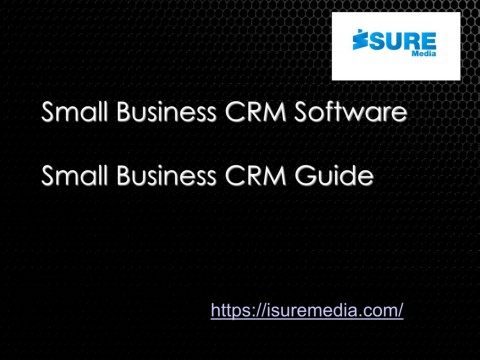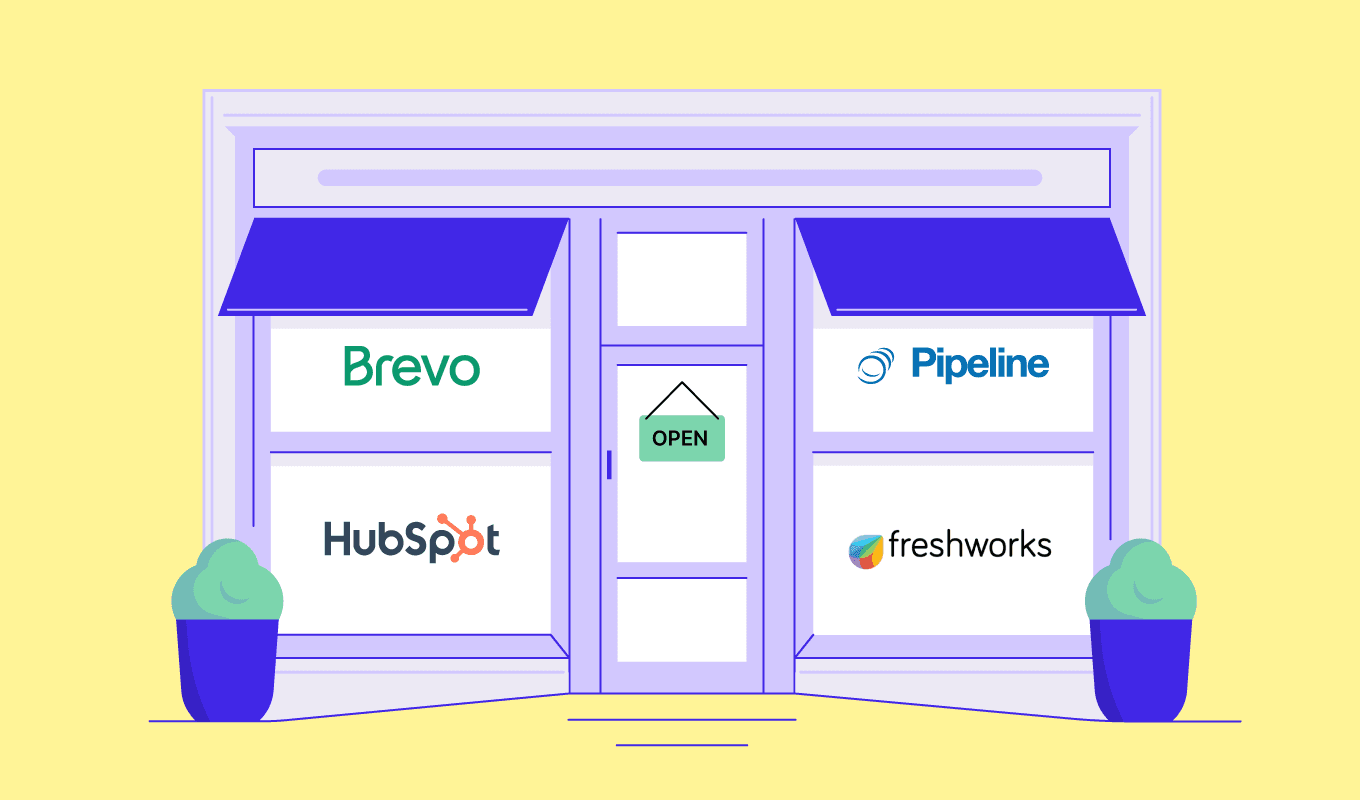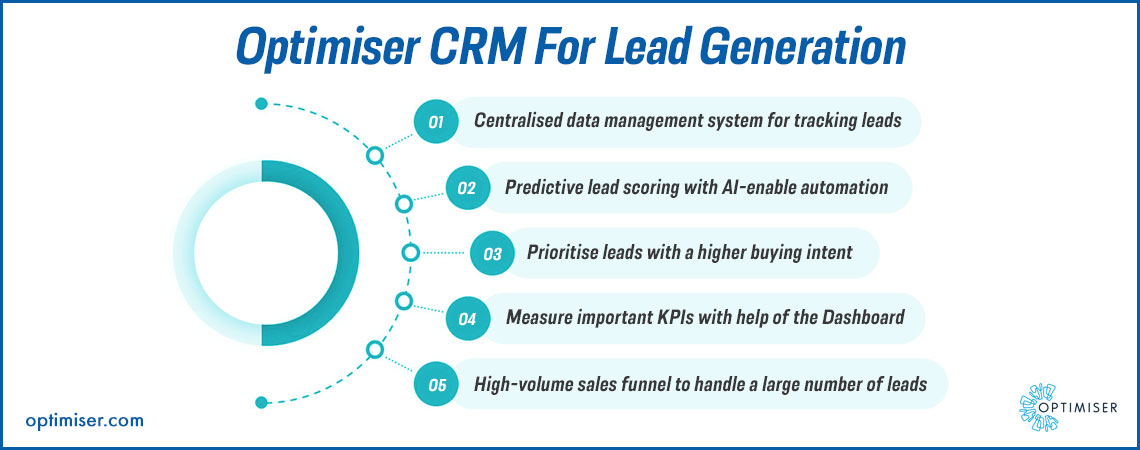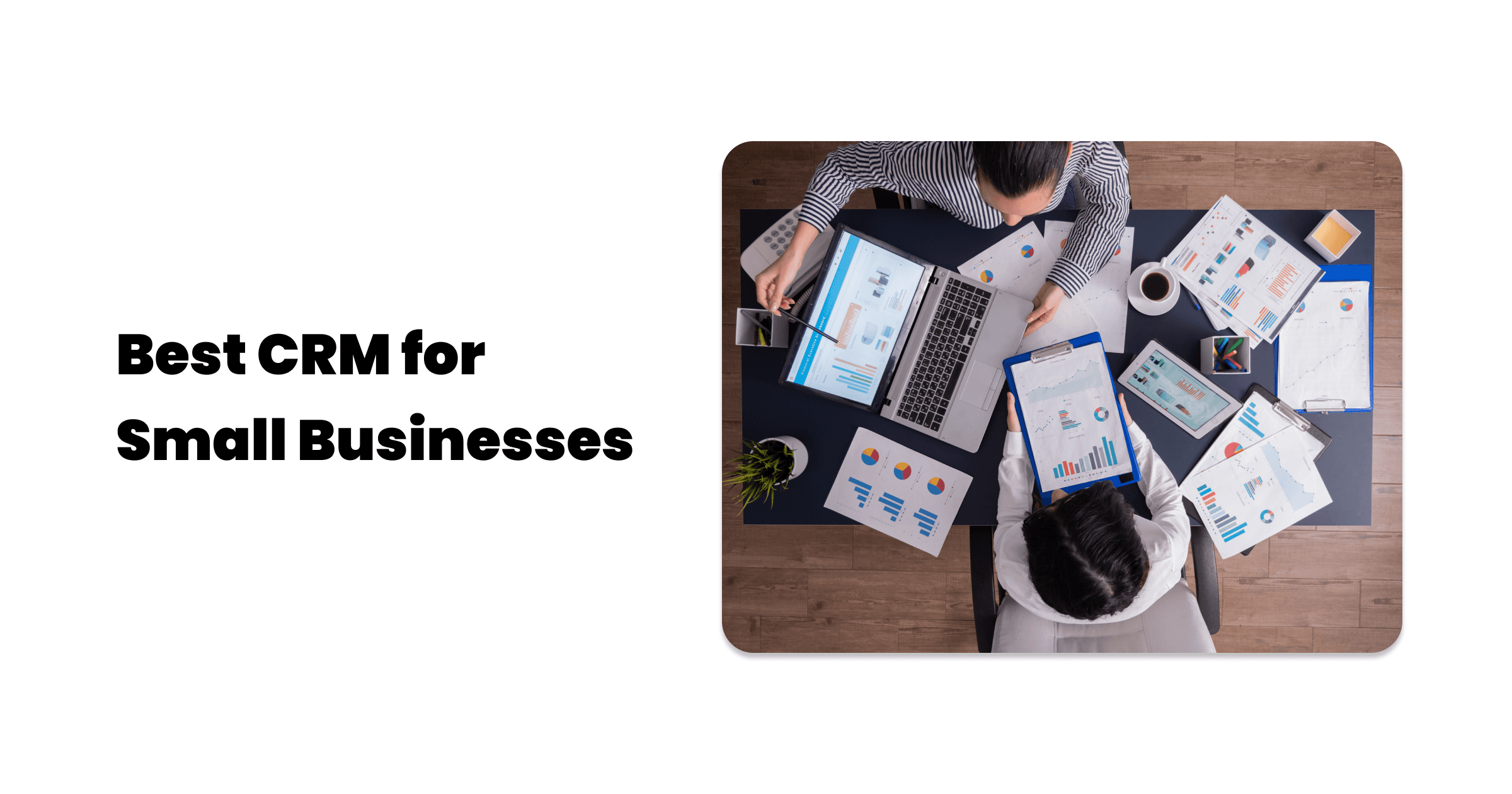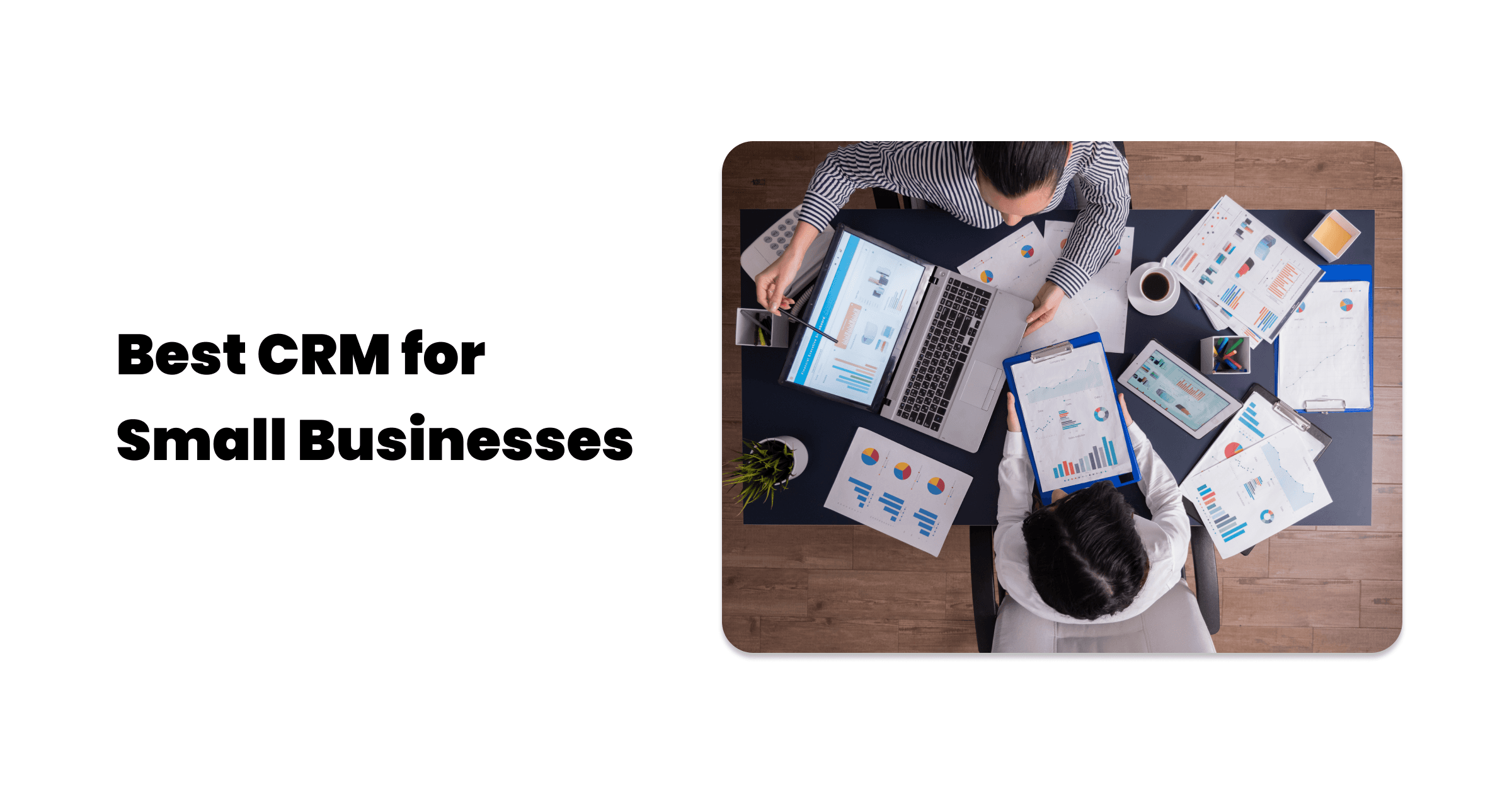Small Business CRM Selection: Your Ultimate Guide to Choosing the Right Tool

Running a small business is a whirlwind. You’re juggling everything from sales and marketing to customer service and operations. In the midst of this chaos, keeping track of your customers can feel like herding cats. That’s where a Customer Relationship Management (CRM) system comes in. But with so many options, choosing the right CRM for your small business can feel overwhelming. Fear not! This comprehensive guide will walk you through the essential tips for selecting a CRM that perfectly fits your needs and helps you thrive.
Why a CRM is a Game-Changer for Small Businesses
Before diving into the selection process, let’s understand why a CRM is so crucial for small businesses. Think of it as your central hub for all customer-related information. It’s where you store contact details, track interactions, manage sales pipelines, and gain valuable insights into customer behavior. Here’s how a CRM can transform your business:
- Improved Customer Relationships: A CRM allows you to personalize interactions, remember preferences, and provide exceptional customer service, leading to increased loyalty and retention.
- Enhanced Sales Efficiency: By automating tasks, streamlining workflows, and providing sales teams with valuable data, a CRM can significantly boost sales productivity.
- Data-Driven Decision Making: CRM systems provide valuable analytics and reporting capabilities, allowing you to make informed decisions based on real-time data.
- Increased Revenue: By optimizing sales processes, improving customer retention, and identifying cross-selling and upselling opportunities, a CRM can directly contribute to increased revenue.
- Better Team Collaboration: A CRM fosters collaboration by providing a centralized platform for all team members to access and share customer information.
Key Features to Look for in a Small Business CRM
Not all CRM systems are created equal. The best CRM for your small business depends on your specific needs and goals. Here are the core features you should prioritize:
1. Contact Management
This is the foundation of any CRM. Look for a system that allows you to:
- Store detailed contact information, including names, addresses, phone numbers, email addresses, and social media profiles.
- Segment contacts based on various criteria, such as demographics, purchase history, and engagement level.
- Import and export contact data easily.
- Integrate with other tools like email marketing platforms and social media.
2. Sales Automation
Sales automation features can save your team valuable time and effort. Key features include:
- Lead management: Capture, track, and qualify leads effectively.
- Sales pipeline management: Visualize your sales process and track deals through each stage.
- Task automation: Automate repetitive tasks, such as sending follow-up emails or scheduling meetings.
- Email integration: Send and track emails directly from the CRM.
- Reporting and analytics: Gain insights into sales performance and identify areas for improvement.
3. Marketing Automation
Many CRM systems offer marketing automation features to help you nurture leads and engage with customers. Look for features like:
- Email marketing: Create and send targeted email campaigns.
- Marketing automation workflows: Automate a series of actions based on customer behavior.
- Lead scoring: Prioritize leads based on their engagement and likelihood to convert.
- Landing page creation: Build landing pages to capture leads and promote your products or services.
4. Customer Service and Support
Exceptional customer service is crucial for building loyalty. Consider a CRM with features like:
- Ticket management: Track and resolve customer support tickets efficiently.
- Knowledge base: Create a self-service knowledge base to answer common customer questions.
- Live chat: Provide real-time support through live chat functionality.
- Integration with help desk software: Seamlessly connect your CRM with your existing help desk system.
5. Reporting and Analytics
Data is your friend! A good CRM should provide robust reporting and analytics capabilities, including:
- Sales reports: Track key sales metrics, such as revenue, conversion rates, and deal win rates.
- Marketing reports: Analyze the performance of your marketing campaigns.
- Customer service reports: Monitor customer satisfaction and support ticket resolution times.
- Customizable dashboards: Create dashboards to visualize the data that’s most important to your business.
6. Integrations
Your CRM should seamlessly integrate with the other tools you use every day, such as:
- Email marketing platforms (e.g., Mailchimp, Constant Contact)
- Accounting software (e.g., QuickBooks, Xero)
- Social media platforms (e.g., Facebook, Twitter, LinkedIn)
- Project management tools (e.g., Asana, Trello)
- E-commerce platforms (e.g., Shopify, WooCommerce)
Step-by-Step Guide: Selecting the Right CRM for Your Small Business
Now that you know what to look for, let’s walk through the process of selecting the perfect CRM for your small business. Don’t worry, it’s not as daunting as it seems. Here’s a step-by-step guide:
Step 1: Define Your Needs and Goals
Before you start shopping, take some time to understand your business’s specific needs and goals. Ask yourself these questions:
- What are your current challenges?
- What are your sales and marketing goals?
- What customer service improvements do you want to make?
- What are your key performance indicators (KPIs)?
- What features are essential for your business?
- How many users will need access to the CRM?
- What is your budget?
Answering these questions will help you create a clear picture of what you need from a CRM and narrow down your options.
Step 2: Research CRM Vendors
Once you have a clear understanding of your needs, it’s time to research CRM vendors. There are many options available, so start by creating a shortlist of potential candidates. Here are some popular CRM options for small businesses:
- HubSpot CRM: A free, user-friendly CRM with powerful features for sales and marketing.
- Zoho CRM: A comprehensive CRM with a wide range of features and integrations.
- Salesforce Sales Cloud: A leading CRM with advanced features and customization options. (Can be costly for small businesses)
- Pipedrive: A sales-focused CRM that’s easy to use and ideal for small sales teams.
- Freshsales: A sales CRM with built-in phone and email features.
- Insightly: A CRM designed for small businesses with project management capabilities.
- Agile CRM: A versatile CRM with marketing automation, sales tracking, and customer service features.
When researching vendors, consider the following factors:
- Features: Does the CRM offer the features you need?
- Ease of use: Is the CRM user-friendly and easy to navigate?
- Integrations: Does the CRM integrate with your existing tools?
- Pricing: Is the CRM affordable for your budget?
- Customer support: Does the vendor offer good customer support?
- Reviews: What are other users saying about the CRM?
Step 3: Evaluate and Demo the Top Contenders
Narrow down your shortlist to a few top contenders and request demos or free trials. This is your chance to get hands-on experience with the CRM and see if it’s a good fit for your business. During the demo, pay attention to:
- User interface: Is the interface intuitive and easy to use?
- Features: Does the CRM offer the features you need, and are they easy to access and use?
- Performance: Does the CRM perform smoothly and efficiently?
- Customer support: How responsive and helpful is the vendor’s customer support?
- Customization options: Can you customize the CRM to meet your specific needs?
Don’t be afraid to ask questions and explore all the features that are important to you. Take advantage of free trials to give your team members a chance to test the CRM and provide feedback.
Step 4: Consider Pricing and Implementation
Pricing models vary among CRM vendors. Some offer free versions with limited features, while others offer paid plans with different pricing tiers. Consider your budget and the features you need when evaluating pricing options. Also, factor in the cost of implementation, which can include:
- Data migration: Transferring your existing customer data to the new CRM.
- Customization: Configuring the CRM to meet your specific needs.
- Training: Training your team on how to use the CRM.
- Ongoing support: Ongoing support from the vendor.
Make sure you understand the total cost of ownership before making a decision.
Step 5: Get Input from Your Team
The CRM will be used by your entire team, so it’s crucial to get their input throughout the selection process. Involve them in the demo process and ask for their feedback on the different CRM options. Consider their needs and preferences when making your final decision. After all, they’ll be the ones using the system daily.
Step 6: Make Your Decision and Implement
Once you’ve evaluated all the options and gathered feedback from your team, it’s time to make your decision. Choose the CRM that best meets your needs, fits your budget, and is easy to use. Once you’ve made your decision, it’s time to implement the CRM. This involves:
- Data migration: Transferring your existing customer data to the new CRM.
- Customization: Configuring the CRM to meet your specific needs.
- Training: Training your team on how to use the CRM.
- Testing: Testing the CRM to ensure it’s working correctly.
- Go-live: Launching the CRM and starting to use it.
Implementation can take some time, so be patient and plan accordingly. Consider the implementation services offered by the vendor, or hire a consultant to help you with the process. Proper implementation is crucial for the success of your CRM.
Step 7: Training and Onboarding
Once the CRM is set up, training your team is a must. The value of a CRM is only realized when everyone knows how to use it effectively. Provide comprehensive training, including:
- Basic navigation: How to navigate the CRM and find key features.
- Data entry: How to enter and manage customer data.
- Sales processes: How to use the CRM to manage sales pipelines and track deals.
- Reporting and analytics: How to generate reports and analyze data.
- Customer service: How to use the CRM to manage customer support tickets.
Offer ongoing support and refresher training as needed. Encourage questions and create a culture where everyone feels comfortable using the CRM.
Step 8: Ongoing Optimization
The CRM journey doesn’t end after implementation. Continuously monitor your CRM usage, gather feedback from your team, and make adjustments as needed. Regularly review your processes, optimize your workflows, and look for ways to improve your CRM’s effectiveness. Here are some ongoing optimization tips:
- Regularly clean and update your data: Keep your customer data accurate and up-to-date.
- Analyze your reports: Track your key performance indicators (KPIs) and identify areas for improvement.
- Automate repetitive tasks: Use automation features to streamline your workflows.
- Integrate with other tools: Connect your CRM with other tools to improve efficiency.
- Stay up-to-date with new features: CRM vendors are constantly adding new features and enhancements. Stay informed about the latest updates and take advantage of new features that can benefit your business.
Common Mistakes to Avoid When Choosing a CRM
Selecting a CRM is an investment, and it’s easy to make mistakes that can hinder your success. Here are some common pitfalls to avoid:
- Choosing a CRM based solely on price: While budget is important, don’t sacrifice essential features for a lower price. Consider the long-term value of the CRM.
- Not defining your needs: Without a clear understanding of your needs, you’ll struggle to choose the right CRM.
- Ignoring the user experience: If the CRM is difficult to use, your team won’t use it, and you won’t see any benefits.
- Not involving your team: Get your team involved in the selection process and gather their feedback.
- Failing to train your team: Proper training is essential for ensuring that your team knows how to use the CRM effectively.
- Not migrating your data properly: Incorrect data migration can lead to data loss and errors.
- Setting unrealistic expectations: A CRM is a tool, not a magic bullet. It takes time and effort to see results.
- Choosing a CRM that’s too complex: If the CRM is too complex, it can be difficult to use and may not be worth the hassle.
- Not integrating with other tools: Failing to integrate your CRM with other tools can limit its functionality.
- Not providing ongoing support: Ensure your team has ongoing support and training.
Final Thoughts: Making the Right Choice
Choosing the right CRM for your small business is a significant decision, but by following these tips, you can make an informed choice and set your business up for success. Remember to define your needs, research your options, evaluate the top contenders, involve your team, and get the right training. With the right CRM in place, you can build stronger customer relationships, streamline your sales processes, and drive growth for your business. Take your time, do your homework, and choose the CRM that will empower you to thrive!
Good luck on your CRM journey! Your business will thank you for it.

